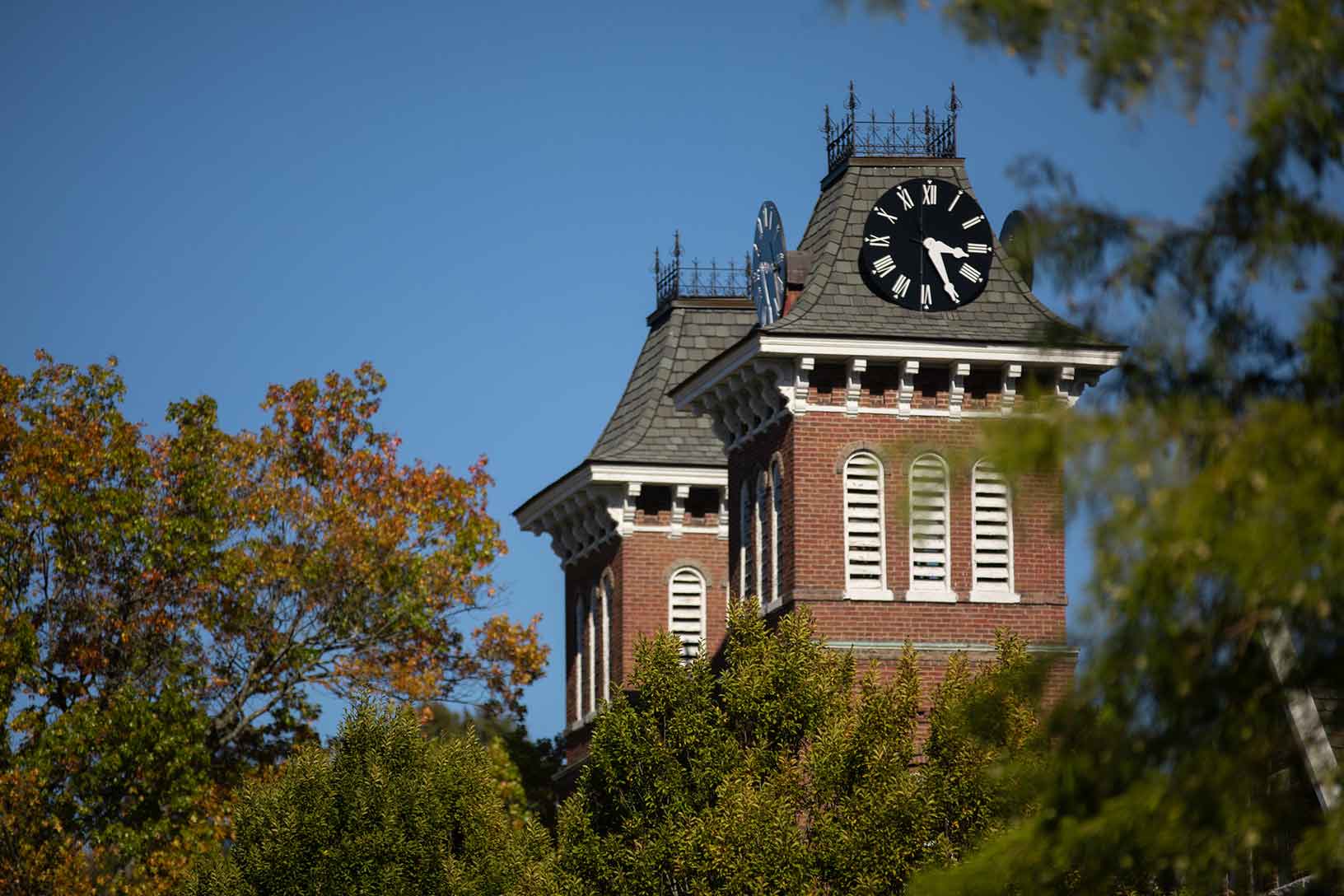California
PennWest-California is awarded $1.2 million grant from the National Science Foundation

The National Science Foundation has awarded PennWest California $1,228,857 for a learning community among its science faculty.
The three-year project, titled "Research-based Professional Development for Science Faculty and Its Impact on Student Learning," is under the direction of Dr. Peter Cormas, of the Department of Education; Drs. Louise Nicholson and Kyle Fredrick of the Department of Biology, Geology and Environmental Sciences; and Dr. Min Li of the Department of Mathematics and Physical Sciences. All teach on California’s campus.
According to Cormas, “…research shows that simply talking about students’ needs and instruction can improve students’ learning of science.”
A few years ago, science faculty began to meet to discuss their common passion, to improve scientific literacy among students. According to the National Science Education Standards, scientific literacy refers to “the knowledge and understanding of scientific concepts and processes required for personal decision making, participation in civic and cultural affairs, and economic productivity.”
“As we started designing the program, we realized that we had issues finding studies that showed that learning communities changed one’s teaching, thereby, increasing student learning in the classroom. In other words, folks who had used learning communities did not often test their students to see if participation in learning communities helped their students improve their learning of science,” Cormas said.
They pieced together their best research and submitted it to Bioscience, a top biology journal.
“By getting accepted, we understood that experts thought our design was a good one that could be tested,” Cormas said.
The group submitted the project idea to the NSF, but were denied three times – until this year.
The science faculty were shocked to discover they had received the grant after having been previously denied.
“It is uncommon for a university like PennWest to get an NSF grant because we are a teaching-centric university. In other words, faculty spend a lot more time teaching and working with students than doing research. Most NSF grants go to large research university like Penn State University, Harvard University, and the University of Texas,” Cormas said.
The project seeks to not only create literate science students, but also to determine how it is able to do so.
“This project will take a scientific approach to examine whether learning communities – in this case, groups of faculty with a shared interest in science education – can effect change in student learning of science and, more broadly, in scientific literacy,” Nicholson said. “Learning communities have been shown to be an effective means of professional development in the K-12 setting, and this project applies the same concept to science faculty at Cal.”
“We are rigorously examining whether these learning communities affect science education and if so, how does change occur: we are analyzing data at every level, from both faculty participants and from students in the courses they teach,” Nicholson added.
Cormas said the grant is one of the largest Improving Undergraduate STEM Education grants that NSF has funded and the amount is high because the project has a large number of faculty participants who will receive a stipend, as well as funds for conference travel to present their findings to science faculty from other universities.
The project also will partner with RAND Corporation – one of the largest US policy and evaluation think tanks – to evaluate the project. RAND, as external evaluators, will ensure that PennWest California conducts the study properly. RAND also will use statistics to determine if and to what degree the learning community may have caused student learning of science, Cormas said.
The award starts Aug. 1. The group hopes to complete the planning/prep phase in fall 2022, and begin the first learning community in spring 2023. The group has until 2025 to complete the project with data analysis and a final report, Li explained.
The science faculty plan to publish findings after the project ends and take this project to other PennWest campuses and all other State System universities.
The National Science Foundation supports research, innovation, and discovery that provides the foundation for economic growth in this country. By advancing the frontiers of science and engineering, our nation can develop the knowledge and cutting-edge technologies needed to address the challenges we face today and will face in the future.